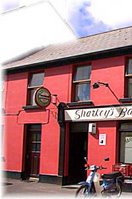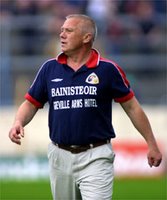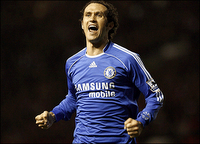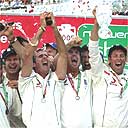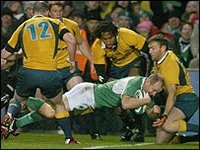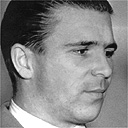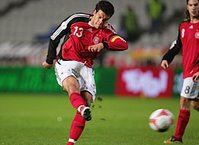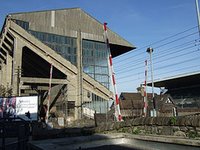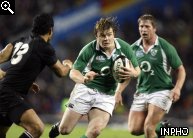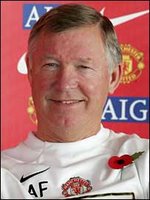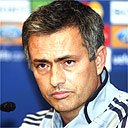Great Sporting Beards
 Pakistan's Muhamad Yousuf distracted the cricket world's gaze from Steve Harmison's remedial work and Glenn McGrath's heel by virtue of his breaking Viv Richards' record for runs batted in a single calendar year yesterday. Yousuf has attributed his success to his conversion to Islam from Christianity two years ago.
Pakistan's Muhamad Yousuf distracted the cricket world's gaze from Steve Harmison's remedial work and Glenn McGrath's heel by virtue of his breaking Viv Richards' record for runs batted in a single calendar year yesterday. Yousuf has attributed his success to his conversion to Islam from Christianity two years ago.And quite right he is. Clearly his faith's requirement to sport a luxurious, bushy beard has inspired him to these record-breaking heights. By providing a natural ballast around his jaw-line, the facial foliage anchors his head, preventing damaging flights of impetuousness at the crease.
We salute some other notable whiskermongers.
W.G. Grace
The most famous beard of them all, Grace lived in a time when chins were rarely bared - making his achievements in bristle-cultivation all the more admirable.
Much like Ali's mastery of the great heavyweights of the 60s and 70s, the scale of Grace's monumental beard easily bested any of the lushest facial thatches of the Victorian era.
A contemporary report described how Australian pace bowler Ernie Jones bowled Grace a bouncer that appeared to "go through his beard" so close was it to his face. Nonsense: it went through his beard alright; but the blighter pitched up no higher than the great man's knees!
Ricky Villa
Spurs' signing of Ossie Ardiles and his hirsute compatriot Villa generated enormous excitement in English football in August 1978.
The World Cup winners brought a rare dash of exoticism to England during the drab days of No Future and binmen's strikes. It is a testament to the swarthy magnificence of Villa's beard that it should have remained intact despite that era's firmly stated opposition to the hippy aesthetic.
Villa did not always fare so well on the field while in England, but the untamed growth was happily in place three years later for his finest hour: that unforgettable dribble through the Manchester City defence in the 1981 FA Cup final replay.
Bjorn Borg
Borg had a custom - subsequently imitated by Brighton's 1983 FA Cup finalist centre-half Steve Foster - that he would disavow shaving until losing. This meant that, for five years in succession, Borg sported a healthy Bjorn-and-Benny growth while winning Wimbledon.
The Swede's icy, inscrutable temperament was credited with helping him dominate tennis in the late 70s and early 80s, but his shock retirement at the age of 26 and his subsequent difficulties with drugs and underwear demonstrate that it was surely the soothing comfort provided by his sandy whiskers which allowed him to maintain such control over his mental faculties.
Giant Haystacks
Largely responsible, along with Charles Manson and Rasputin, for the perception abroad that men with beards are not to be trusted. Unfair, as the man known to his closest chums as Martin Ruane was a deeply religious fellow from honest Mayo stock who was reputedly a friend of Paul McCartney's - he even appeared in the 1984 Macca-written movie Give My Regards to Broad Street.
But Haystacks, for anyone who devotedly followed his epic bouts with Big Daddy in the 70s and 80s heyday of British wrestling, was simply the most fearsome, baddest man on the planet. To be a kid at that time was to suffer nightmares of his gruesome form, crushing you as Big Daddy and Kendo Nagasaki lay helpless in the first row. The power of the beard, my friends.
Labels: 'great sporting' series, beards, sport
....Read more!
